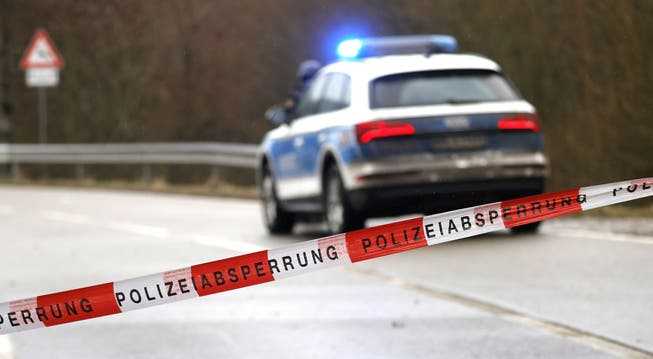The motives for the bloody deed near Kusel in Rhineland-Palatinate are unclear. The perpetrator or perpetrators are being searched for. Violence against police officers has increased in recent years.
Every operation can escalate at lightning speed, says police unionist Rainer Wendt.
In the early morning hours of this Monday, a 24-year-old German police officer and her colleague, who was five years her senior, were shot dead on duty. They wanted to carry out a traffic control on Kreisstrasse 22 near the Rhineland-Palatinate town of Kusel. Before they died, they were able to report the crime to the operations center by radio. The responsible police department in Kaiserslautern is looking for the perpetrator or perpetrators and warns against taking hitchhikers with you. The motives behind the crime are still unknown.
The young woman, who was still a student at the police college, and the slightly older officer were killed around two kilometers north of the district town of Kusel, between Mayweilerhof and Ulmet. In this region, the North Palatinate Uplands, Rhineland-Palatinate is particularly sparsely populated. Kusel itself has only around 5,000 inhabitants. At 4:20 a.m., there were probably only a few vehicles on Kreisstrasse 22. Photos show a winding, hilly single-lane road between fields, bushes and trees, which was cordoned off about 1,000 meters from the crime scene. The search extends to neighboring Saarland. A police helicopter circles. According to information from the “Bild” newspaper, the officials stopped the car because there was dead game in the trunk.
Saarland Prime Minister Tobias Hans said the act made him “absolutely stunned” and that he was “deeply shaken”. His Rhineland-Palatinate counterpart Marie-Luise Dreyer, together with Interior Minister Roger Lewentz, said they were “deeply shocked”: “Our thoughts are with the relatives.” Mourning flags are ordered for the whole country, the flags fly at half-mast, the patrol cars wear black ribbons. Federal Interior Minister Nancy Faeser reminds the act of an execution, “and it shows that police officers risk their lives every day for our security”.
A heinous act
The state chairwoman of the Greens, Misbah Khan, also expressed her condolences to the “relatives of the two young police officers”. The fact that “young people who have consciously decided to serve the community have been victims of an act of violence” is unacceptable. The future federal chairman of Bündnis 90/Die Grünen, Omid Nouripour, describes the act of violence as “extremely depressing” and such a threat to police officers as “a very, very difficult matter”.
Joachim Paul, member of the federal executive board of the AfD and local politician in Koblenz, Rhineland-Palatinate, also expressed his condolences to the relatives: “This heinous act is a terrible reminder that our police officers are putting their lives at risk in their everyday service to our society. » He hopes that the perpetrators will soon be caught and “experience the full harshness of the law”. The opposition leader of the CDU in the Mainz state parliament, Christian Baldauf, canceled the presentation of his new political team planned for this Monday. It was “on such a day and under these impressions not the time to talk about party politics”.
Since the founding of the Federal Republic of Germany, around 450 police officers have been killed on duty. The fact that patrol officers are shot during a traffic check is one of the absolute exceptions. Nevertheless, violence against police officers has increased in recent years, says the national chairman of the German police union, Rainer Wendt, in an interview with the NZZ.
Basically with a protective vest
The annual “situation picture” shows that more than 80 percent of all acts of violence against the police did not occur during large-scale operations, but during daily patrol work. “Lightning fast,” says Wendt, situations could escalate. That is why police officers are always “highly sensitive” and wear protective vests even during traffic checks. You always have to expect that someone will grab a gun without cause.
In Rhineland-Palatinate there was one of the first pilot projects with video cameras in emergency vehicles in the 1990s. One can only hope, explains Wendt, that the two colleagues from Kusel had switched on the camera. In this case, the persons to be checked would have to be informed of the recording. Basically, the police officers approached a stationary car from behind, “in a lit scene”. A colleague usually secures the situation from the right with a firearm, while the other approaches on the driver’s side.
In recent years, “an incredible amount” has been done to increase security for officials. “But there are situations from which you cannot protect yourself.” Such a situation cost the lives of two young people on Kreisstrasse 22.
